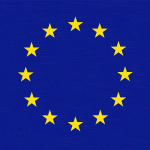 In a keynote speech at the British Academy on the 10th November, Máire Geoghegan-Quinn, the European Commissioner for Research, Innovation and Science, addressed the growing concerns about the role of the humanities and social sciences in the new European research funding programme, Horizon 2020, which will begin in 2014.
In a keynote speech at the British Academy on the 10th November, Máire Geoghegan-Quinn, the European Commissioner for Research, Innovation and Science, addressed the growing concerns about the role of the humanities and social sciences in the new European research funding programme, Horizon 2020, which will begin in 2014.
In an open letter sent to the commissioner on the 28th October the European Alliance for the Social Sciences and Humanities had requested that Horizon 2020 spend €5 billion on SSH research under a dedicated sub-programme called Understanding Europe in a global context: transitions towards innovation societies.
Addressing an audience of key figures from the international social science and humanities community, the Commissioner underlined the importance of the social sciences and humanities in the new programme, estimated to be worth €80 billion. Instead of a separate Challenge, the commissioner argued that research under the suggested Understanding Europe theme would be included in other areas of the programme.
Let me … assure you that future funding at the European level will provide significant space for social sciences and humanities research….
…While we are still working on some of the details, I can already give you an idea of some of the likely features of the proposed programme. Horizon 2020 will be structured around three distinct, but mutually reinforcing pillars, in line with Europe 2020 priorities.
Excellent research is the foundation on which Innovation Union, and our push for growth and jobs, is based. So, the first pillar, ‘Excellence in the science base’, will strengthen the EU’s excellence in science, through actions supporting frontier research (through the very successful European Research Council); future and emerging technologies; the Marie Curie actions and priority research infrastructures.
The second pillar, ‘Creating industrial leadership and competitive frameworks,’ will support business research and innovation. Actions will cover: increasing investment in enabling and industrial technologies; facilitating access to finance, and providing EU-wide support for innovation in SMEs.
The third pillar, ‘Tackling societal challenges’, will respond directly to the challenges identified in Europe 2020. Its focus will be on the challenges of: health, demographic change and well-being; food security and the bio-based economy; secure, clean and efficient energy; smart, green and integrated transport; resource efficiency and climate action, including raw materials; and inclusive, innovative and secure societies.
This last challenge was not included in the public consultation Green Paper that I mentioned earlier, and is now being considered on the basis of the proposals received during the consultation. While ‘Understanding Europe’ is not part of the title – as suggested in the Open Letter addressed to me – I think the substance is reflected in the content…
… Overall, the social sciences and humanities will be embedded throughout the three pillars of Horizon 2020. We need to understand how new technologies and innovation arise and how they are used in the economy and in our wider society. Indeed, the Social Sciences and Humanities can shed light on the process of research itself and how innovation works.
The full text of the Commissioner’s speech can be read here.
